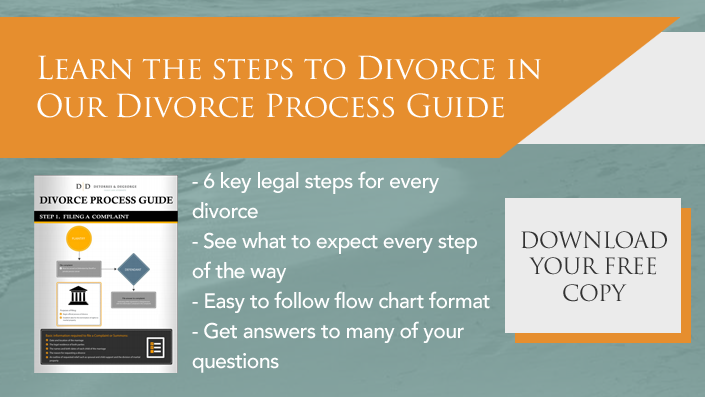 Divorce is complicated but, divorce in New Jersey is even more complicated and one that remains largely a mystery to people who are not regularly involved in the practice.
Divorce is complicated but, divorce in New Jersey is even more complicated and one that remains largely a mystery to people who are not regularly involved in the practice.
Here are 5 things that you should know about New Jersey divorce law.
1. Cause of Action
A cause of action is one of the many reasons for filing a divorce. Most causes of action are fault-based, meaning that one party is at fault. The reasons for causes of action can vary, but they often include adultery, addiction, and extreme cruelty. If you file for divorce under one of the “fault” bases, you must prove that the cause of action and, therefore, the fault exists.
New Jersey also has two “no-fault” bases for divorce, known as 18-month separation and irreconcilable differences. Under these provisions, no fault needs to be proven. You certify that the parties have lived separately for a continuous period of 18 months or more, or that irreconcilable differences have existed for at least six months and the parties no longer wish to be married.
People who are filing for divorce often believe they should file under a fault-based cause of action because, for example, they want their spouse to “pay” for their adultery. However, as far as alimony and equitable distribution, New Jersey law does not provide for a penalty in any way if a spouse has a relationship outside of the marriage or any other fault-based pleading. Therefore, you do not get a benefit for filing under a fault-based cause of action and are required to prove more than if you had filed under a no-fault provision.
2. Length of the Marriage
The length of the marriage is the date of the marriage through the date of filing for divorce, and it has an impact on the rights that are available to parties in a divorce. This timeframe does not include any period that parties were together before marriage. For example, a couple who dated for ten years prior to getting married and filed for divorce after five years of marriage will only have a 5-year relationship in terms of the division of assets and liabilities, not 15 years. This is important when determining the parties’ respective rights to property, such as retirement accounts, as well as what type of alimony might be appropriate for each case.
3. Alimony
There are four types of alimony: open durational, limited duration, rehabilitative, and reimbursement. The most common two types of alimony are open durational and limited duration.
Open durational is available to couples who have been married for more than 20 years, or in limited extraordinary circumstances.
Limited duration is available to those who have been married for less than 20 years. In a limited duration matter, the length of alimony can be up to the length of the marriage. For example, if the parties were married for 13 years, the party who needs alimony can receive it for up to 13 years.
4. Child Support
The child support guidelines govern child support in New Jersey. The child support guidelines are generated by a computer program that considers the parties’ gross incomes, any mandatory contributions, the number of overnights they have with the children, health insurance contributions, and any prior support obligations. The parties can choose to deviate from these guidelines, and, in high-income cases, deviation may be necessary. However, most parties abide by the guidelines.
5. Retirement
Any retirement assets that accrued during the marriage are subject to equitable distribution, meaning that they are to be shared or equalized at the time of the divorce. In many instances, the parties who are going through the divorce process share the marital portion equally, meaning what accrued from the date of marriage through the date of filing of the complaint. Once it is determined what assets must be divided and how they are to be divided, parties and their divorce lawyers must complete QDROs, which are the orders that allow the division of the retirement accounts, to allow the companies holding the retirement assets to segregate the funds.
If you are considering a divorce and have questions about the intricacies of the divorce process, contact the attorneys of DeTorres & DeGeorge today to schedule a consultation.


 START LIVE CHAT
START LIVE CHAT










